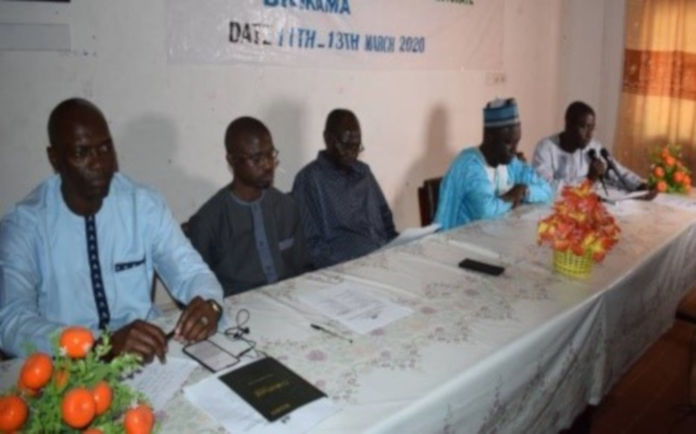By Ndey Sowe
The United Nations Educational, Scientific and Cultural Organization (UNESCO) has provided funding of over one million Dalasi towards “addressing teachers’ challenges’’ in the Gambia, through the Development of a Comprehensive Teacher Policy.
This information was disclosed on Friday March 13th 2020, during a stakeholder convergence which concluded a three day validation held at the Regional Education Directorate in Brikama, on this draft policy.
Lamin Jarjou, the Project’s Program coordinator said the project will enhance teachers’ support in their professionalism and will improve recruitment and retention of teachers by laying clear standards for their operational certification and accreditation, as well as effectively harmonizing teacher coordination and management.
Lamin Fatajo, the Director for Region Two who also doubles as the Project’s Focal Point, said this is the first time a Teacher Policy is developed in the Gambia; that the project’s duration was from 2018 to 2019 and was conceived from an International Conference that they attended.
“Currently we have developed the 2016 to 2030 Policy and we have the Strategic Plan on how to implement the policy,” he said; that the teacher is an important element in education service delivery.
Fatajo further said the quality of teachers determines the type of lessons they will give and that this can affect the educational outcome of children; that the policy will create space where the teacher will be recognized as a very important person in society and will be open to facilities such as promotions as well as the enabling environment of getting the opportunities they did not have before.
“The policy will tell you what a teacher should be, including the attributes and working conditions,” he said; that with these compliments, the teacher will value him or herself and people’s expectations as well.
“We have six Educational Regions and there was consultation in all of them,” he said; that the policy is comprehensive and it involves parents, teachers and students, mothers’ clubs representatives, School management committees, the Governors’ offices, Chiefs and Alkalos.
Fatajo said they sought the views of people in these Educational Regions in order to create a gender as well as demographic dimension if the need may arise, from any of the Regions.
“We have nine dimensions from teacher recruitment, employment and working conditions, deployment, standards, training, career path as well as School governance and management,’’ he said; that these were issues they looked at and gathered information on from the Regions; that they had a stakeholder/partnership consultation where they looked at different types of School administration and management and also looked at partners in the education sector such as UN bodies, conferences they had and other issues important to discuss.





















